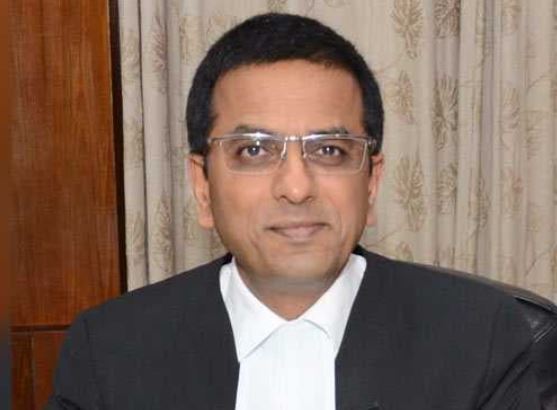Supreme Court Judge, Justice D.Y. Chandrachud has said that if people do not continue the right discourse to ascertain the interests of marginalised groups, “justice done can quickly be undone” if people do not continue the right discourse to ascertain the interests of the marginalised groups.
Delivering the Justice Y.V. Chandrachud memorial lecture on ‘The Future of Mediation in India’ at ILS Law College in Pune, Justice Chandrachud said “Though the courts expand the horizon of constitutional rights to safeguard the interests of the marginalised groups, if people do not keep up with the rights discourse ‘justice done can quickly be undone’… The question is whether raising rights claims in courts is the only way by which justice is achieved.”
While referring to an advertisement by consumer goods company Dabur regarding a same-sex couple celebrating Karva Chauth, he said justice cannot be always measured through the implementation of legal norms, and wins & losses in the court hall. He regretted the negative response people gave to the ad, leading to it being taken off-air last year.
The multinational company had even tendered an unconditional apology for hurting public sentiments, noted the Supreme Court Judge, stating that this happened four years after the Supreme Court decriminalised homosexuality in 2018.
The judge said that on a socio-political level, rights claims deviate attention from realising paramount changes in human relationships and social institutions – changes that would establish factual equality.
Speaking about mediation as a tool for social change, Justice Chandrachud said the social norms are brought in consonance with constitutional values through the exchange of ideas and flow of information.
He further said that the future of mediation in India was in its ability to impact social change in a manner that the law did not.
“Mediation empowers the marginalised in the course of process… This is the future of mediation in India,” noted the Supreme Court Judge.
Chandrachud compared the judicial verdict to mediation and said that a judicial verdict, which recognised the rights of individuals or a group, would arrive after lawyers and judges have spoken in a language that the common people do not know or understand. He added that on the other hand, a resolution arrived at after invaluable discourse during mediation, secured justice for individuals and groups on their own terms.
The Judge gave the example of how a gay rights group in Rochester, New York, mediated effectively in 1984 to gain the right to march in a civic parade.
He said the group decided not to take the fight to the courts because they wanted a customised solution to their problem through constructive dialogue and meaningful discourse.
“Mediation integrates the rights discourse with the concern for the needs of the parties,” he added.
If the legal remedies available to parties were detached from social realities, mediation conferred an avenue for the citizens to determine the interpersonal relationship in ways that the law denied them, noted Supreme Court Judge.
He said besides, the remedies being provided under the law adopted a ‘one-size-fits-all’ approach, whereas mediation offered an alternative and finer approach to secure a customised remedy.
Talking about the pendency of cases at all levels of courts in the country, particularly the pendency of more than 4.1 crore cases in district and taluka courts, Justice Chandrachud said the courts in the country were extremely burdened and desperately congested — both literally and metaphorically.
He said in light of these numbers, dispute resolution mechanisms like mediation were an important tool in increasing access to justice by providing redress and settlement of disputes in a non-adversarial manner, free from the formalistic procedural practices of the law.
Mediation provided an opportunity to reformulate and preserve sustainable relationships between different parties, whether they were business partners or life partners, he explained.
Calling the value of mediation as an end in itself, the Supreme Court Judge said one of the central tenets of mediation was self-determination by parties, which provided a distinct participatory role for the stakeholders to negotiate and reach a creative and practical solution beyond the constraints of legal remedies.
He also talked about mediation being beneficial to communities that face marginalisation, stating that the marginalised communities and women have often stated that their voices were heard and legitimated, when they used mediation as a forum of redressal.


